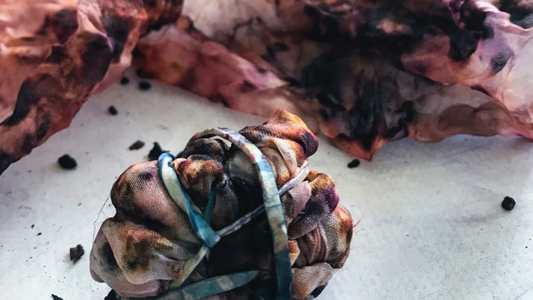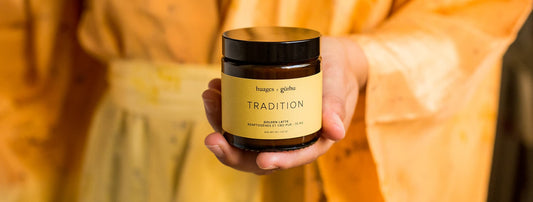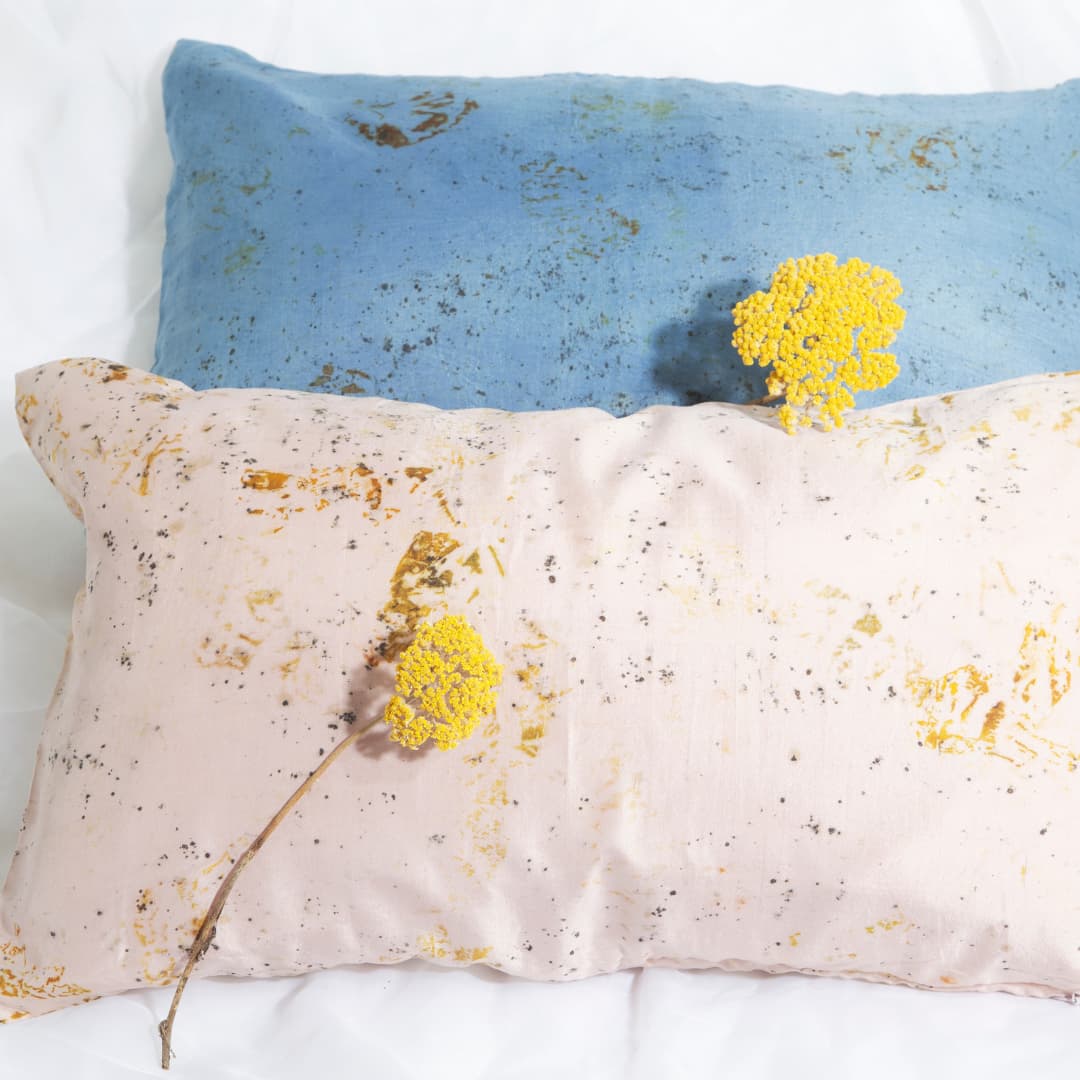Textile standards, certifications and labels provide consumers with greater transparency on the quality of products and their ecological and social sustainability .
Convinced that ethical, eco-responsible and high-end fashion is possible, we have designed a catalog from organic materials that is based on a circular economy . Peace silk, but also the linen and cotton used for our creations are GOTS certified , the reference label for organic clothing.
In this article, we explain the certifications and textile labels to favor in order to engage in more sustainable fashion.
Textile certifications and labels
Sustainable fashion textile certifications and labels are based on more or less strict standards depending on the organizations that created them. Some like GOTS, however, enjoy worldwide recognition, as it covers the entire production process.
#1 The GOTS label (Global Organic Textile Standard)
The GOTS label is the one we favor in all our collections, it guarantees the highest level of sustainability , from the cultivation of raw materials to the making of clothes.
Created in 2002 and recognized by European legislation, this international label takes into account the environmental and social sustainability of textile manufacturing circuits. It requires a minimum of 95% certified organic fibers to be obtained and does not tolerate the use of any chemical agent.

#2 OEKO-TEX® certifications
The OEKO-TEX® association brings together two German and Austrian institutes which develop standards intended to certify the sanitary and ecological qualities of textiles and leather. The most famous certification is the Standard 100 by Oeko-Tex® , it aims to guarantee the absence of any harmful substance in the components used for the design of a textile product.
Other OEKO-TEX® certifications also exist:
- Made in green , specializing in leather produced under sustainable and socially responsible conditions;
- Organic cotton guarantees the traceability of the product from the cotton field to the final product and the absence of harmful substances or GMOs;
- Leather standard corresponds to Standard 100 for leather, it can apply to parts designed entirely or partly in leather;
- STeP (Sustainable Textile & leather Production) certifies the environmental, health and social sustainability of textile and leather production chains;
- Eco passport applies exclusively to the chemical compounds involved in the manufacture of fabrics and leathers, they aim to guarantee their harmlessness;
- Responsible business is a certification relating to business management, it helps to respect human rights and takes into account the environmental criteria of the production chain.
#3 The Global Recycled Standard (GRS)
The GRS standard allows companies to better control the social, environmental and chemical practices of recycled products . Recognized in more than 50 countries, it applies in particular to companies specializing in ginning, spinning, weaving, knitting, printing and sewing.
#4 The Fair Wair Foundation
The Fair Wair Foundation is an independent non-profit organization that works with clothing brands, fashion workers and manufacturers to improve working conditions in factories.
Its fields of action range from the fight against gender-based violence , to social dialogue and even to the revaluation of the wages of textile workers.
#5 The OCS standard (Organic Content Standard)
The OCS certification certifies the biological origin of the materials used to make a garment. This can apply to textile products containing a minimum of organic materials depending on the degree of certification.
#6 Fairtrade
Fairtrade certification is one of the most recognized in the world for fair trade . It guarantees solidarity production circuits that fight against poverty and contribute to the economic development of villages.
Fairtrade applies in particular to cotton and textiles, but also to certain foodstuffs such as sugar, cocoa or coffee.
How to choose a sustainable clothing brand?
Green marketing , green marketing or ecological marketing has developed considerably in recent years. This allows companies to strengthen their image by highlighting their environmental and social actions.
But while some clothing brands are resolutely anchored in a posture of ecological and social sustainability, there are also many who are riding the wave of “ greenwashing ”.
Ecological and social labels and certifications therefore offer the consumer greater transparency on the sustainability of products, of which the following are the key aspects.
Organic materials and dyes
Choose natural materials from an eco-responsible production circuit. Linen, cotton, wool, or even silk are biodegradable organic fibers when they come from responsible agriculture. Also pay attention to the type of dye and fixers used when treating the pieces.
At Nimboo, we only use GOTS certified fabrics, hand dyed using self-created vegetable dyes . These are designed with the flowers and fruits used in Hindu ceremonies, in collaboration with rural cooperatives.

The “cruelty-free” guarantee for the respect of animals
Animal materials such as silk, wool, leather or even goose or duck feathers are often made to the detriment of animal welfare . Some certifications are specifically dedicated to guaranteeing animal respect, such as the “Leaping Bunny” program, but this one concerns cosmetic products.
For clothing, certifications are rarer and less internationally recognized. However, we can cite Naturleder , Responsible Wool Standard (RWS) or certain vegan certifications which exclude the use of animal materials.
At Nimboo, we have always used the precious peace silk to design quality, eco-responsible, ethical and cruelty-free collections. The silk comes from ancestral sericulture which releases the chrysalis into the wild after gently extracting it from its cocoon.

Cruelty-free silk pillowcase and sleeping mask , Nimboo collection
The dignity of all actors
Fast fashion, beyond its environmental impact, is also built on a model of economic development that harms the dignity of workers. The profits of these big brands are generated thanks to the outsourcing of low-cost labour, generally located in India, Pakistan, Bangladesh or even China.
It is to fight against this model of overconsumption which exploits a precarious labor force that we wanted to include Nimboo in a circular production chain. Our development model is based on the United Nations Sustainable Development Goals . Living wages, the employment of marginalized populations and the emancipation of women are at the heart of everything we do.
A sustainable and committed fashion designer, Nimboo offers quality clothing and household linen, made with respect for all its stakeholders. Nature first, at the origin of all our creations, is respected at each stage of our circuit: the cultivation of plants, their recycling, the breeding of silkworms, the recovery of water... We favor artisanal trades to limit our CO2 production and choose packaging made from biodegradable corn starch.
In direct contact with rural populations, we collaborate with cooperatives that share our values of sustainability and support the economic independence of 43 talented artisans. Nimboo, beyond a committed company, is a sustainable brand resolutely turned towards the future .











